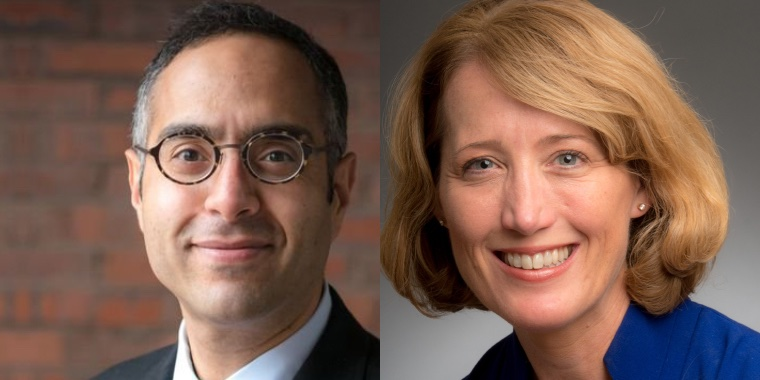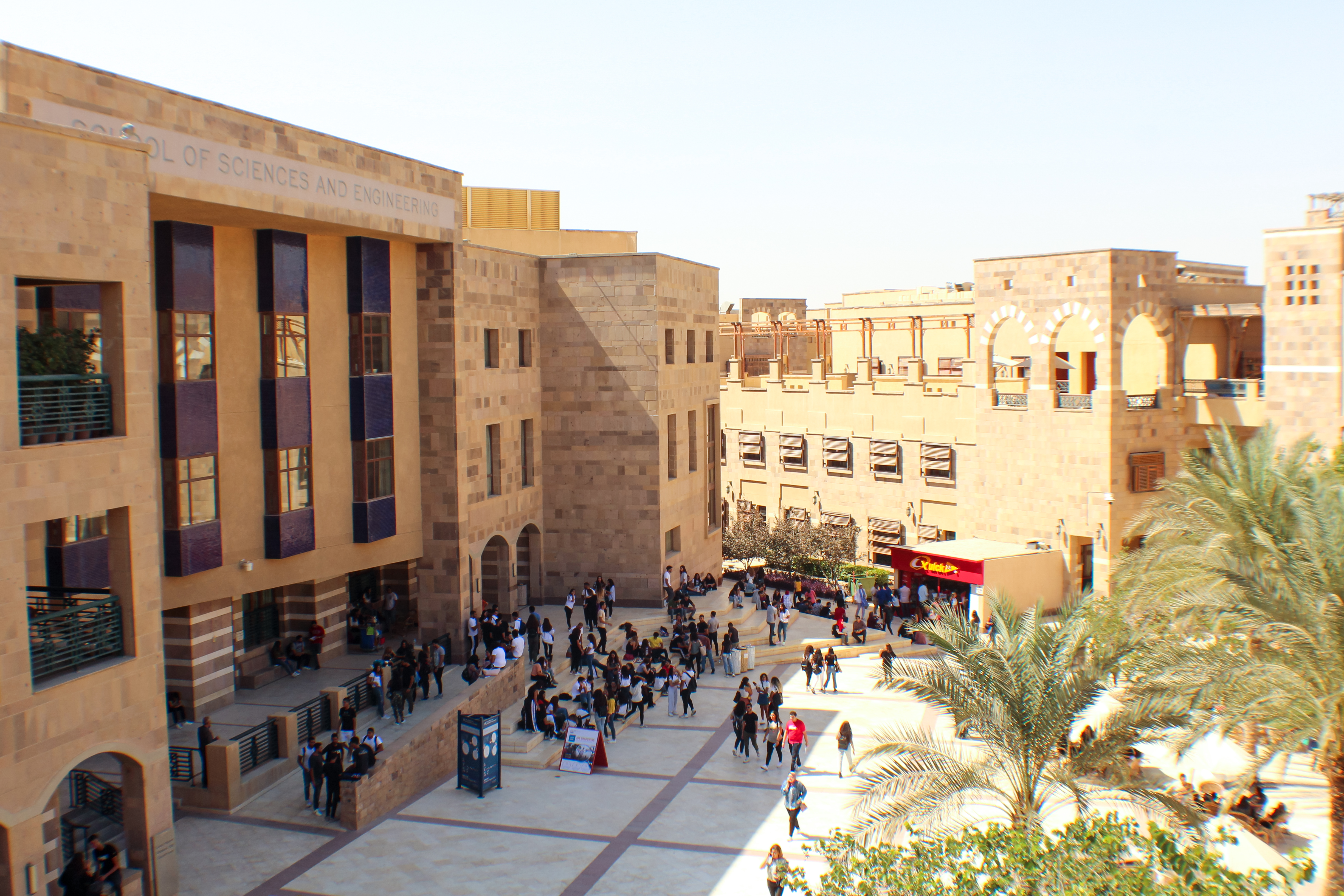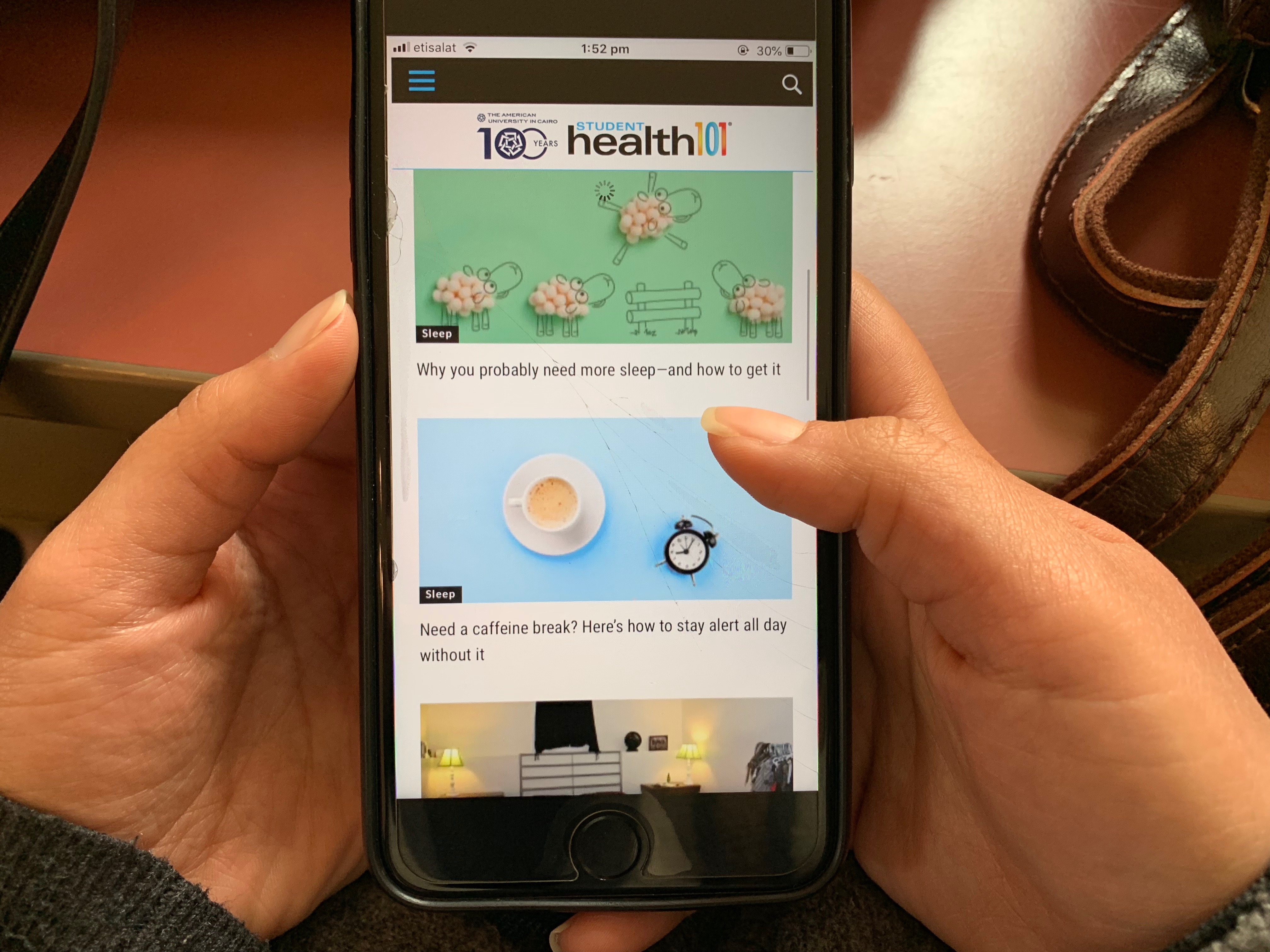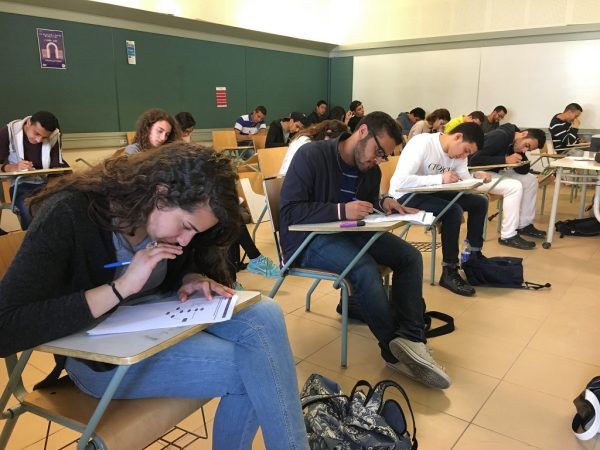Presidential Search Committee Seeks Student Input
By: Doha Wang
@DohaWang
Photo Courtesy of AUC Connect.
Since AUC’s current President Francis Ricciardone announced in an email that he will be retiring in June 2021, the AUC Board of Trustees formed a committee to search for a presidential candidate and report back.
An email by the Presidential Search Committee was sent out to the AUC Community in regards to the latest updates on the search. This was followed by a campus conversation held on October 20 to gain personal insights from students and faculty members.
I recently met with Kristin Lord and Tarek Massoud, co-chairs of the Presidential Search Committee, about the ongoing process of finding AUC’s next president.
The following are excerpts from that interview.
Caravan: What is the process you follow to select the presidential candidates?
Massoud: There are lots of interviews that take place with those candidates that are conducted by the firm that we’ve hired to help us conduct this search. We ultimately get down to a short list. Those people are interviewed by the selection committee, and then we get to a really small list of people who come to campus, meet students, meet faculty, and meet administrators. The community gets a sense of them, they get a sense of the community and then there’s a whole other set of dialogues that have to happen. But I really feel confident in saying that nobody is going to get this job if they have not been to AUC’s campus as part of this search process.
Caravan: Are the presidential candidates recruited or do they apply for the job?
Massoud: There are two ways in which senior appointments like this are made. So, we put out an advertisement and we encourage people to apply for it. At the same time, we actually ask people to give us their advice, comments and nominations. So, sometimes somebody will say, this person will make a great president for the AUC, and then we will contact that person and we’ll say we have this position open, are you interested in applying for it? And so, oftentimes when you have a senior academic appointment like that, some of the pool of people that you’re considering are people who saw the advertisement. But, others are higher education leaders who are well-known to the faculty members, to members of the Board of Trustees, and frankly to the search firm, which also keeps a massive database of people who are appropriate for senior level positions in International University Administration. So, when I say it’s a global search it really is, and we use a variety of means to identify the universe of credible candidates.
Caravan: AUC has not yet had an Egyptian president, is it possible that we might get our first?
Massoud: The protocol that governs the relationship between the American University in Cairo and the government of Egypt that was signed, the latest protocol, stipulates that the president of the iniversity must be an American. That’s a stipulation from way back. So, that, we can tell you for certain. The president of the University will have to be an American. Now, could they be a joint American Chinese, joint American Egyptian, joint American Lebanese? Sure. But they do have to be American. It’s not just that they need to have an American passport, they need to understand what American means in the title American University in Cairo. So, you have to have an understanding of the American higher education system and the values behind it.
Caravan: What are the criteria that you are looking for in a president in terms of their academic background?
Lord: I think there’s a strong sense by the search committee that we really do need someone who really understands universities, really understands how they work and is really committed to the values of American higher education. And also, how those manifest themselves in the functioning of a very complex higher education institution. So, could that be someone who has spent their career in academia? Yes. Could it be someone who has had a little time in academia but has also gone on and done other things? Yes. Is it someone who may have had all their full-time jobs outside of academia but has been a member of a Board of Trustees, or a faculty member, or had other affiliations with universities? Yes. So I mean, I think we feel a little bit flexible based on the candidates, but I think we feel committed to having someone who really understands the academic side of the institution and what it will take in order to chart a path for AUC going forward.
Caravan: How involved are the students and faculty members in the current search?
Massoud: Faculty are very involved in the search. So this search committee has the most faculty representation of any presidential search committee that we’ve had. If you look at the last search committee, it had three faculty members. This one has five. And the faculty are really core members of the committee. In addition to your question, student input is extremely important and what we’re doing is having, in addition to the campus conversations, a series of meetings with faculty and with groups of students to talk about this position, their aspirations for the university and for the person who will inevitably fill this role. So, the role of students is extremely important. The committee is meeting with students and we will, throughout this process, be soliciting student input. And then of course finally, when we are down to a number of candidates who come to the campus, having them meet with students and then getting student feedback on them and evaluations of them will be critical in the final decision.
Caravan: Is a long-term presidential plan set from the beginning prior to appointing a president, and he’s meant to follow it? Or is the plan left to them?
Lord: I think the committee feels strongly that a new president needs to be able to have a large role, not just in shaping that vision; but also in convening the key stakeholders of the campus community, faculty, students and staff in order to shape that vision. I don’t think it would be possible to have a completely set long-term vision in place before a president came, and I don’t think top candidates would accept a job where they have no role in shaping what they would be executing. And I think it will be a very important part of the onboarding process for the president to have those conversations. This will be one of the ways that a new president really learns about the institution directly from all of these different parts of the AUC community.
Caravan: What would you tell the students to encourage them to take part in this search?
Lord: Only the students really have that day-to-day lived experience with the education and the student life aspects of the university. So, in order to help us make the best choice about who will best serve the students going forward, we really need that information. Otherwise, we will always hear it secondhand. We will hear it from faculty, we will hear it from staff, but that will be filtered through their own perspectives. And what we really need is to hear it directly from students to make sure we fully understand. I just want to underscore how we read every single email that comes into that psearch@aucegypt.edu. So they won’t be publicized, students can be very candid. So that’s a direct line for students at any time in the entire process. Whether it’s December or January or February, students can always use this email address and reach us.




